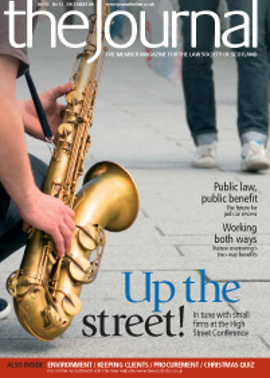Public money or bust?

The most effective way to revive the mortgage market would be for the Government to guarantee tranches of mortgage-backed securities issued by lenders to fund new lending.
That is the principal conclusion of the final report by Sir James Crosby, commissioned by the Treasury to provide recommendations on improving the flow and availability of mortgage finance in the UK.
Crosby recognises that any decision on intervention is clearly one for the Government, but believes there is a strong case for further intervention with (in his estimation) the banking system going through “three years of major restructuring”, resulting in pain and risk to consumers and a risk of accelerating the weakness in the housing market. “A large injection of funding into the banking system, delivered in a way that feeds through directly into mortgage lending and real activity in the housing market, would ameliorate the economic consequences of the shortage of mortgage finance and deliver tangible benefits to consumers.”
While the industry should also be encouraged to adopt new standards of standardisation and transparency in the market in mortgage-backed securities, and there should be a revision of accounting conventions which have had the unintended consequence that some bank assets have been written down to less than their intrinsic worth, such measures will take years to command investor confidence, he believes.
His proposal would see the Government “auctioning its own guarantees in a form that could be attached by lenders to AAA tranches of mortgage-backed securities issued to fund their own lending”. Conditions would include that guarantees could only be attached to new lending in connection with house purchases, not remortgages, and not to lending at high loan-to-value or against a poor credit records.
Around £100 billion in guarantees would probably have to be issued between 2009 and 2010 to address the shortage of mortgage finance, but as confidence returned to the market the auction price of the guarantees would fall until eventually investors decided they no longer wanted them. In the result, the likely outcome is that the exercise would be profitable for the Government: for holders of AAA mortgage-backed securities to suffer credit losses, house prices would have to fall by more than twice as much as during the 1990s recession, and the Government would retain the right of secondary recourse against the banks. “In a market starved of confidence the proposal therefore amounts to the Government charging for access to the confidence that attaches to its credit rating.”
Reaction to the report has been muted: it received only a brief mention in the Pre-Budget Report, when the Chancellor observed that difficulties were caused by EU rules on state aid. Commentators suggest that the Government may not be in a hurry to take up the proposals.
Crosby, however, predicts that without such measures, things will get worse before they get better: lower base rates will help borrowers but do little for the availability of mortgage finance, and net mortgage lending is likely to fall below zero in 2009 with only a modest recovery likely in 2010. “No new net mortgage lending across a full calendar year would be unprecedented and is likely to be associated with further weakness in consumer spending and an increase in unemployment. In the housing market it is difficult to see why this would not also involve further price falls and fewer housing starts.”
In short, on this analysis solicitors with residential property practices should look for alternative revenue sources to help them through the next two years or so.
In this issue
- Sale and purchase agreements – how to avoid the unexpected
- 2008: a year of change; 2009: a year for progress
- Law: it's the business
- Business makeover
- Training plus
- Registers update
- Public service
- One of a kind
- Brussels sprouts more eco-law
- Test yourself
- Trainees try again
- Terms of Business Guidance Note (November 2008)
- Guideline: Scanning and Archiving Documents (November 2008)
- Client, or customer?
- The changing faces of fraud
- Business advice roundup
- The year that crunched
- The anatomy of law firm failures
- Chapter and verse
- The power of agreement
- Under a cloud
- Scottish Solicitors' Discipline Tribunal
- ECJ in the fast lane
- Website review
- Book reviews
- Tender trouble
- Opportunity beckons, Smart tells symposium
- Public money or bust?






